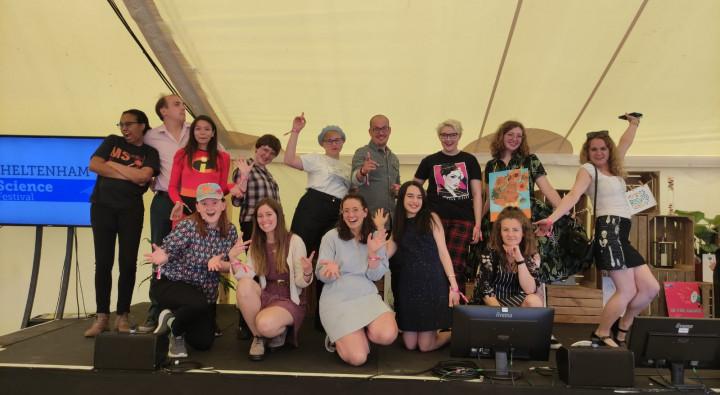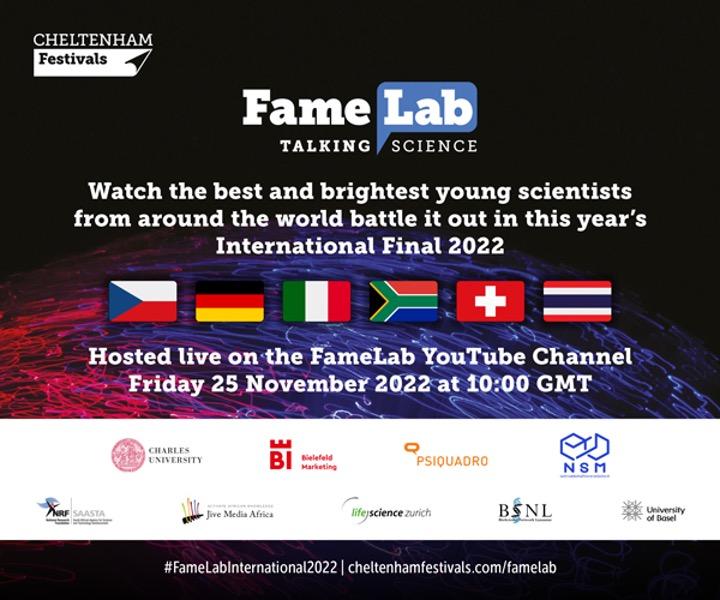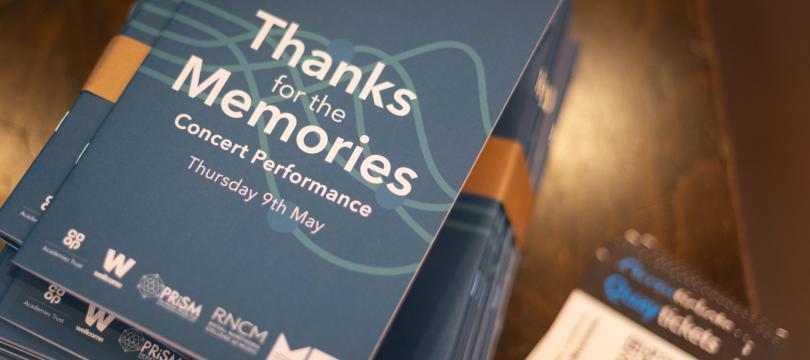FameLab: Coaxing scientists out of the lab and on to the stage
Cheltenham Science Festival’s Dr Marieke Navin reflects on the FameLab science communication competition as it goes into its twenty-third year.
Cheltenham Science Festival’s Dr Marieke Navin reflects on the international FameLab science communication competition as it goes into its twenty-third year.

FameLab is the largest public-facing science communication competition and training programme in the world. Since 2005, it has identified and nurtured scientists from all over the world, helping them to be confident and skilled in communicating their research with a global audience of millions, united by a love of science and an appetite for the very latest scientific research served up in the most engaging and entertaining way.
The beginnings of FameLab
FameLab was founded by Kathy Sykes and Frank Burnet in 2001, as part of the Cheltenham Science Festival. They felt that the Public Understanding of Science (PUS) movement at that time too often lacked professionalism and, while there was much good-natured volunteering, they wanted to create higher quality events offering light and shade, laughter, play, seriousness, controversy and art.
After a few years, they realized that the pool of scientists trained to talk with the public needed to be widened. So, in 2005 Famelab developed into a talent development pipeline, seeking to find a greater diversity of capable speakers for the science festival (and beyond) and to make it easier for new people, from a range of backgrounds, to get into science engagement.
Evolving and adapting in a changing engagement landscape
We later partnered with the British Council, which was the catalyst for FameLab to go global. This allowed the competition to reach over 40,000 scientists in 35 countries, and work with over 200 partner organisations. Some finals reached television audiences and some finalists kick-started public engagement with science movements in their own countries.
In 2014, we created a sister programme for secondary school students, FameLab Academy sponsored by EDF Energy.FameLab Academy works with Year 9 pupils, just at the stage where they are about to choose their GCSE subjects. It gives them a chance to shine, whether their interests are in performance, art, science or sport. Students explore a topic they are passionate about, all while building invaluable communication and confidence skills. The school programme now runs in a number of regions across the UK as well as in Australia and Qatar.
Over the past twenty years science engagement has changed significantly. We have rightly moved away from the deficit model of engagement, with scientists no longer simply imparting knowledge to the public, but favouring two-way dialogues. This approach values different ways of creating and understanding knowledge, recognising that high-quality, relevant and valuable research is only possible when involving diverse perspectives.
FameLab has responded to this evolving landscape with a versatile approach - primarily offering training, while also linking scientists with the public through local science centres and museums, providing networking opportunities, and running a comprehensive learning programme, holding around 200 days of educational activity in schools and community settings throughout the year.
What all our participants share is how much they value meeting scientists from across a wide range of disciplines. This has also been an important aspect of FameLab’s work – recognising that there was a lack of representation in science and ensuring we enrich science engagement through both the scientists and communities we reach.
The friendships created in these cohorts last a lifetime, but also have had unexpected outcomes – we have had FameLab babies, marriages and other creative projects!
Our legacy
We are still totally astonished by how FameLab reached around the planet. It was a simple idea, with a commitment to quality – and kindness. We learnt that sometimes you can have a huge impact by staying committed to an idea and values and working in close partnership with other like-minded organisations.
Many of the finalists have gone on to do astonishing things, and FameLab has nurtured more diverse ways of communicating science. Previous finalists include broadcasters Maggie Aderin-Pocock and Timandra Harkness, artist Luke Jerram, comedians Steve Mould, Matt Parker and Helen Arney, authors Andrew Steele and Lewis Dartnell and Science Festival organisers like me! They often come back to the Science Festival to perform, which means our festival is always fresh – telling scientific stories through comedy, talks, performances and more!
You can see more about this in our YouTube video here or below.
Find us on socials at:
@FameLab
#FameLab
For further enquiries, please contact Marieke at marieke.navin@cheltenhamfestivals.com.


